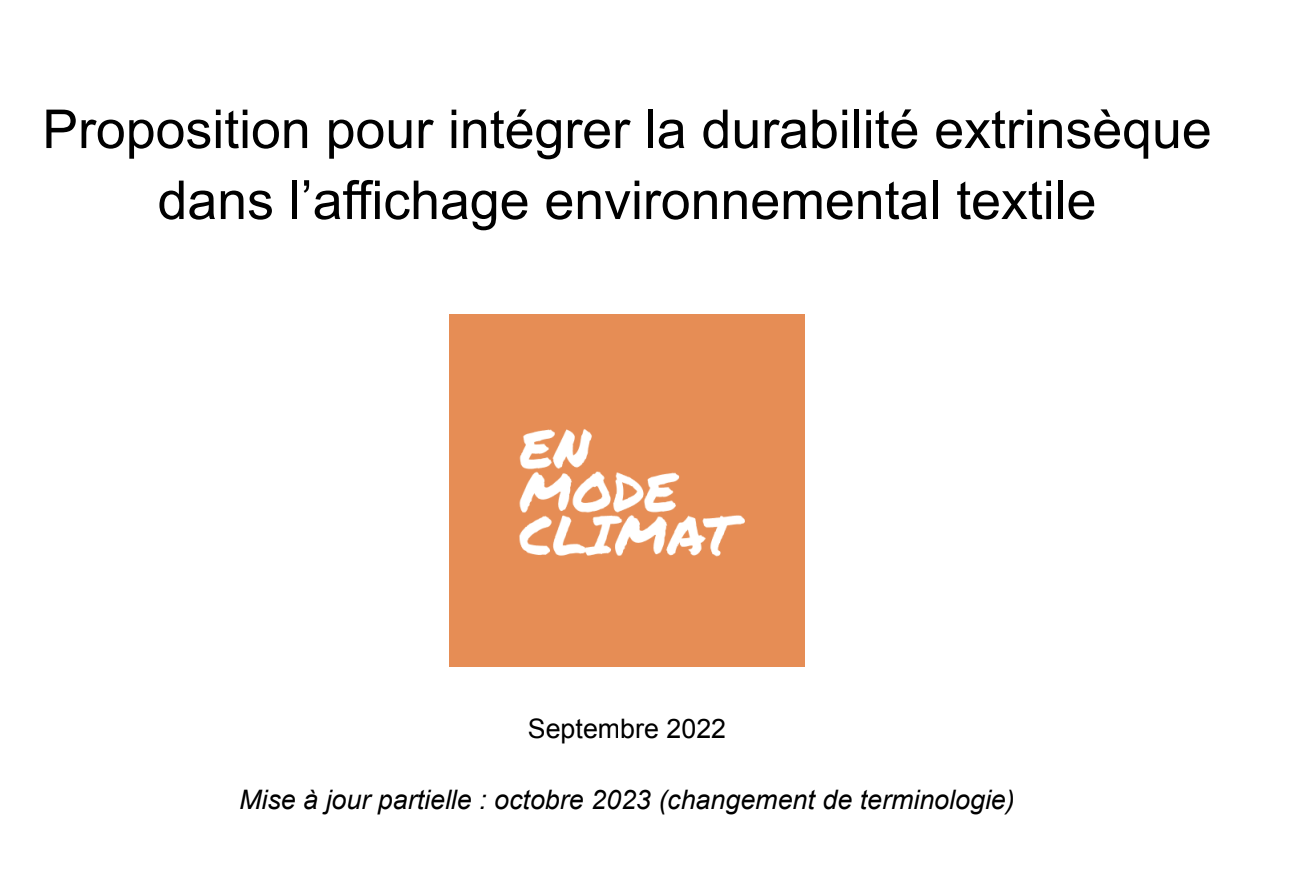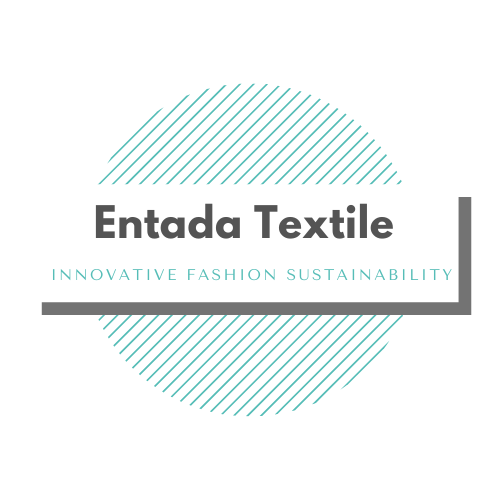Throughout History, fashion industry has often played a role in societal marking and social affiliation. The 19th century emphasized haute couture, sewing and craftsmanship in its noblest sense. Then the 20th century witnessed an industrial revolution and outsourcing. Will the 21st century be the era of political revolution for the industry? is Fashion Industry becoming a geopolitical manifesto ?
Following a conversation with Victoire Satto & Alden Wicker, and the rejection of the Corporate Sustainability Due Diligence (#CSDDD) text by the European Union last week, I wondered: “🤔 Will the fashion industry in the 21st century be nothing but politics?”
Victoire Satto is a journalist and the founder and CEO of The Good Goods magazine. She is involved in these issues through scientific research, convictions, and media roles. Alden Wicker is an American activist journalist and founder of EcoCult magazine. As a pioneer in responsible and sustainable fashion topics, she particularly investigates fashion and health. Her book is dedicated to this theme: To dye for. Our conversation focused on the toxicity of certain products, production processes with dubious traceability, and the influence of lobbying internationally.

Alden Wilcker’s bookTo dye for
🇫🇷 Fashion Industry: A Geopolitical Manifesto in France
France is considering legislation to curb the dominance of fast fashion and ultra fast fashion actions . On March 4, 2024, a meeting was held at the Ministry of Ecological Transition and Territorial Cohesion. Minister Christophe Béchu met with various actors from the fashion and clothing industry to work on the bill proposed by MP Anne-Cécile Violland. This regulation would aim to reduce the ecological impact of the textile industry. Since some believe the Agec law needs a clearer and better-controlled framework.

Christophe Béchu, French Minister of ecological transition
Faced with urgent challenges such as plastic pollution, water consumption, carbon emissions, and waste related to the fashion industry, public sector actions seem to be materializing. Among the measures considered:
➡️ Bonus-Malus: The government aims to reduce the price gap between ultra-fast fashion garments and other market products by introducing a bonus-malus system.
➡️ Regulated Advertising: Stricter rules on advertising are being considered to limit the promotion of these products, often leading to impulsive purchases.
➡️ Increased Transparency: The mandatory environmental labeling introduced in 2025, already approved for France, aims to inform consumers about the ecological impact of products. Announcements regarding the methodology and framework for this labeling are expected soon. This will require training for sales teams. I was actually interviewed by Sport Guide magazine on this topic.
The Fashion Industry in France: Ecoscore & Crucial Questions
🔍 What methodology will be used to assess the environmental cost of products? How can we ensure that it accurately reflects the sector’s challenges?
🔍 What will be the link with existing initiatives promoting eco-design? Already deployed by many brands, validated by consumers, scientists, and civil society actors? How can we simplify matters for companies, brands, and manufacturers?
In conclusion, the minister highlighted the complementarity between the “punitive” environmental cost and Eco scores that value the most sustainable and eco-designed products.
🔎 Fashion Industry in France: the Duty of Vigilance Law for Dummies
This law aims to impose a duty of vigilance on large French companies and their subsidiaries regarding human rights and the environment in their activities and those of their suppliers.
Scope: It concerns French companies with more than 5,000 employees in France or 10,000 employees worldwide, as well as their direct or indirect subsidiaries.
Obligations: Companies must develop and implement a vigilance plan including reasonable measures to prevent serious violations of human rights, health, and the environment resulting from their activities.
Plan Content: The vigilance plan must include risk mapping, evaluation procedures, prevention and monitoring measures, as well as recourse mechanisms for victims.
Sanctions: In case of failure, companies can be held responsible and fined up to 10 million euros. Victims can also seek redress in court.
Follow-up: An annual report on the implementation of the vigilance plan must be published and submitted for approval to the body responsible for the administration or oversight of the company.
Marwa Zamaray is an ESG consultant and EU Climate Pact ambassador to the European Commission. As such, she studies legislation and proposes impactful digital marketing strategies related to the textile value chain. During the last Première Vision fair, she mentioned the Corporate Sustainability Due Diligence Directive (#CSDDD). According to her, it is an important compliance tool for the sector regarding data and responsibilities, aiming to shift the ethical and living wage paradigms.
A lack of strong legislation at the European level could condemn green growth and lead to rebound effects. Indeed, one can legitimately ask, “Fashion: A geopolitical manifesto disguised in favor of fast fashion?”
🇪🇺 Fashion Industry: A Geopolitical Manifesto at the European Level
At the end of 2023, the European Union was actively discussing 16 legislative texts related to fashion and textiles, with the first regulations set to take effect in 2024. However, last week, 14 out of 27 countries, including Germany, France, and Italy, opposed the Duty of Vigilance law. France had already enacted the Duty of Vigilance law (Law No. 2017-399) in 2017. This retraction signifies a significant setback in European negotiations and, according to MEP Lara Wolters interviewed by Novethic, raises concerns about the democratic future of Europe.
Concerns about applicability thresholds are obstructing discussions. Under the influence of major employer unions discussions on thresholds are ongoing. Thus, the threshold could shift from companies with 500 employees to 5000 employees. Therefore it’d exempt approximately 80% of the market. Why? Lobbying power, inter-country arrangements, timing issues, financial cost, political pressure outside the European Union?
Current Proposal on Duty of Vigilance
Regarding corporate sustainability, the European Commission’s stance can be summarized as follows:
Corporate Responsibility: The European Commission encourages companies to integrate sustainability into their operations and supply chains to promote responsible business practices.
Due Diligence Obligations: It emphasizes the importance for companies to conduct assessments of the environmental and social impact of their activities and take measures to mitigate potential risks.
Regulatory Framework: The Commission plans to adopt legislation on reasonable diligence regarding sustainability to ensure that companies adhere to high standards of social and environmental responsibility.
Furthermore, the world gets lost in textile waste. Meanwhile, there is a strong and growing request for sustainable raw materials of biological and circular origin for new textiles. Ultra-fast fashion brands are not challenged about quality. Or penalized for items they sale in European territories that quickly become waste to be processed in Europe.
“🤔 Will the fashion industry in the 21st century be nothing but politics?”
My inspirations for trying to find an answer to this crucial question for eco-responsible fashion are varied: Politics, science, economics, innovation, training capacity, and funding availability are:
👉🏻 Listening to an episode of VLAN! Podcast by Gregory Pouy with David Djaïz: The Challenges of Climate Geopolitics 👂
👉🏻 An article from Novethic on the European Duty of Vigilance rejected after a reversal by Member States;
👉🏻 The press release from Impact Movement France on due diligence and the French renegotiation from 5K to 500 employees.
👉🏻 A conversation with Julien Durant, CEO of PICTURE ORGANIC CLOTHING, revealed their 2030 roadmap focused on carbon reduction and shifting consumption patterns. In California, the AB 1817 Safer Clothing and Textiles Act has been implemented, banning the use of PFAS substances in textiles. This legislation enforces a progressive ban starting from January 1, 2025, followed by stricter measures from 2027 onwards. Picture has summarized this legislation comprehensively, which is worth reading.
👉🏻 Jules Coignard & Raphaël Masvigner from Circul’R, who collaborate with major groups, sometimes perceive legislation as “schizophrenic.” They emphasize that while these laws are essential, they are not immune to assaults from various lobbies seeking to limit their scope or provoke setbacks. Such attempts to backtrack and the lack of effective sanctions create conflicting messages, undermining efforts for a more ambitious sustainable development.
The fashion industry: an ecological transition where nothing changes?
The concept of green growth, explored in an article published on The Good Goods, offers a compelling perspective. Here’s a summary: The ecological transition emerges as a response to the failure of sustainable development taking the form of green growth. Green growth hinges on the idea of decoupling economic growth from environmental degradation, supported by technological progress.
However, decoupling is subject to stringent conditions, including absolute, total, global, sustainable, and rapid criteria, as outlined in Carbone 4’s report. The techno-solutionist optimism of green growth bets on technological innovation enabling economic growth without threatening the environment. Yet, it raises questions about the sustainability of infinite growth in a finite world. Where extensive and intensive growth can exacerbate environmental problems. The rebound effect of good intentions aims to prevent resource depletion while preserving economic growth and profit.
The fashion industry: En Mode Climat’s geopolitical proposal

Proposition de En mode Climat
👉🏻 En Mode Climat is a non-profit organization. It acts as an alliance comprising various stakeholders in the textile industry. Brands, factories, organizations, and media unite in a responsible lobbying effort to combat climate change. Moreover, ENC works on legislative proposals.
Here’s a summary in 6 points of En Mode Climat’s legislative proposals:
- Progressive ecological taxation: Introduce a progressive carbon tax to encourage the transition to more sustainable production and consumption methods.
- Financing ecological transition: Allocate carbon tax revenues to investments in renewable energies and ecological infrastructure.
- Support for energy sobriety: Implement financial support mechanisms to encourage households to reduce their energy consumption.
- Promotion of the circular economy: Promote reuse, repair, and recycling of products to reduce waste and preserve natural resources.
- Encouragement of dietary transition: Subsidize sustainable agricultural practices and promote local and organic food to reduce the carbon footprint of agriculture.
- Strengthening environmental governance: Implement transparency and control measures to ensure compliance with climate commitments. Address ecological urgency in all public policies.
⚒️ The fashion industry: amidst a political counter-revolution
Fortunately, there are companies, NGO’s, and professionals institutions like Paris Good Fashion, Textile Exchange, Fashion for Good… And the Circular Fashion Federation who are taking proactive steps. They are either working on more tailored solutions in collaboration with suppliers and policymakers. Or else advocating for more transparency in fast fashion.
Afnor, the certification body, offers a perspective aligned with business realities. Also they are historical advancements such as with the Climate and Resilience Law, the Agec Law which are driving strong industrial transformations. As well as the establishment of organizations like ADEME, Refashion, and Ecologic, which receive subsidies for French companies. Perhaps soon, there will be legislation aimed at increasing transparency in fast fashion?
⁉️ So, “Is fashion merely politics?”

I don’t have an absolute answer. We cannot do without politics, but should we accept it as it is? What’s almost certain is that the industry influences more than just our clothes.
As a consultant, I’m equipped to guide you through these questions. Let’s discuss them together.
